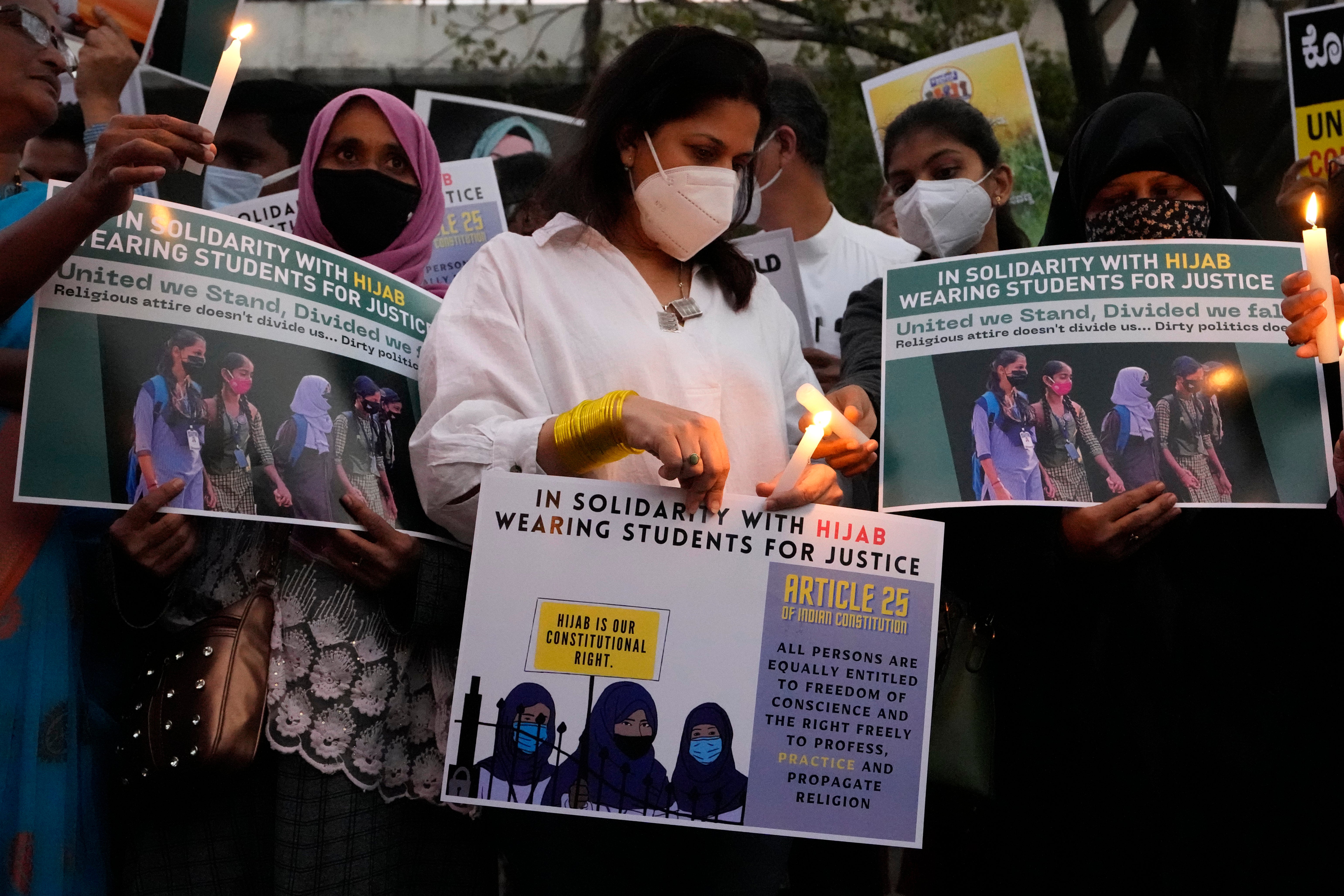Muslim girls in hijabs turned away by Indian college a day after court ban
Students have gone to India’s Supreme Court to challenge lower court order banning headscarves
Your support helps us to tell the story
From reproductive rights to climate change to Big Tech, The Independent is on the ground when the story is developing. Whether it's investigating the financials of Elon Musk's pro-Trump PAC or producing our latest documentary, 'The A Word', which shines a light on the American women fighting for reproductive rights, we know how important it is to parse out the facts from the messaging.
At such a critical moment in US history, we need reporters on the ground. Your donation allows us to keep sending journalists to speak to both sides of the story.
The Independent is trusted by Americans across the entire political spectrum. And unlike many other quality news outlets, we choose not to lock Americans out of our reporting and analysis with paywalls. We believe quality journalism should be available to everyone, paid for by those who can afford it.
Your support makes all the difference.A day after an Indian court upheld a government order banning hijabs in schools and colleges in the state of Karnataka, several Muslim girls in headscarves and burqas were turned away from educational institutions.
In Karnataka’s Shivamogga district, Kamala Nehru College authorities barred 15 girls from entering the institution because they were wearing the traditional veils.
“Today was the last day to submit our assignments but we are not allowed inside the class,” one of the students told The Times of India. “We requested them [college authorities] to allow us but the college said the court order has to be followed. It is not the fault of principal or the teachers. Actually, we did not get justice.”
The six Muslim girls from Udupi who originally moved court seeking permission to attend classes wearing a hijab have now approached the Supreme Court to challenge the Karnataka High Court’s verdict.
They have vowed to continue their fight till they get justice. “We had moved the high court seeking permission to wear the hijab in the classrooms ... We will not go to the college without the hijab, but we will fight for it,” one of the girls told PTI news agency.
The students said in their petitions that wearing the hijab was a fundamental right guaranteed under India’s constitution and essential practice of Islam.
But the state’s highest court on Tuesday dismissed the plea, saying “wearing of hijab by Muslim women does not form part of the essential religious practice in the Islamic faith” as it added that a school uniform is a reasonable restriction that students cannot object to.
The court held that hijab is a matter of attire and cannot be treated as fundamental to Islamic faith.

The ruling led activists and citizens to take to social media to say that the order was disappointing and just another example of denying democratic freedoms to Indian Muslims.
The controversy that has been simmering for days began on 28 December last year after authorities at the Pre-University College in Udupi prohibited students from wearing the traditional Muslim headscarves inside the classroom.
Six students of the school resisted against the ban by sitting outside the classrooms in their headscarves and subsequently moved the high court seeking relief. But the issue soon ballooned into a national row pitting students into protests and counter-protests along religious lines, as several colleges across the state imposed a similar ban.
A Supreme Court bench headed by chief justice NV Ramana on Wednesday agreed to hear the challenge. But the matter will be listed only after Holi vacations, which end on 20 March.
“The urgency is that there are many girls who have to appear in examinations,” senior advocate Sanjay Hegde told judges but the apex court said “let us see” as other cases have also been mentioned.



Join our commenting forum
Join thought-provoking conversations, follow other Independent readers and see their replies
Comments